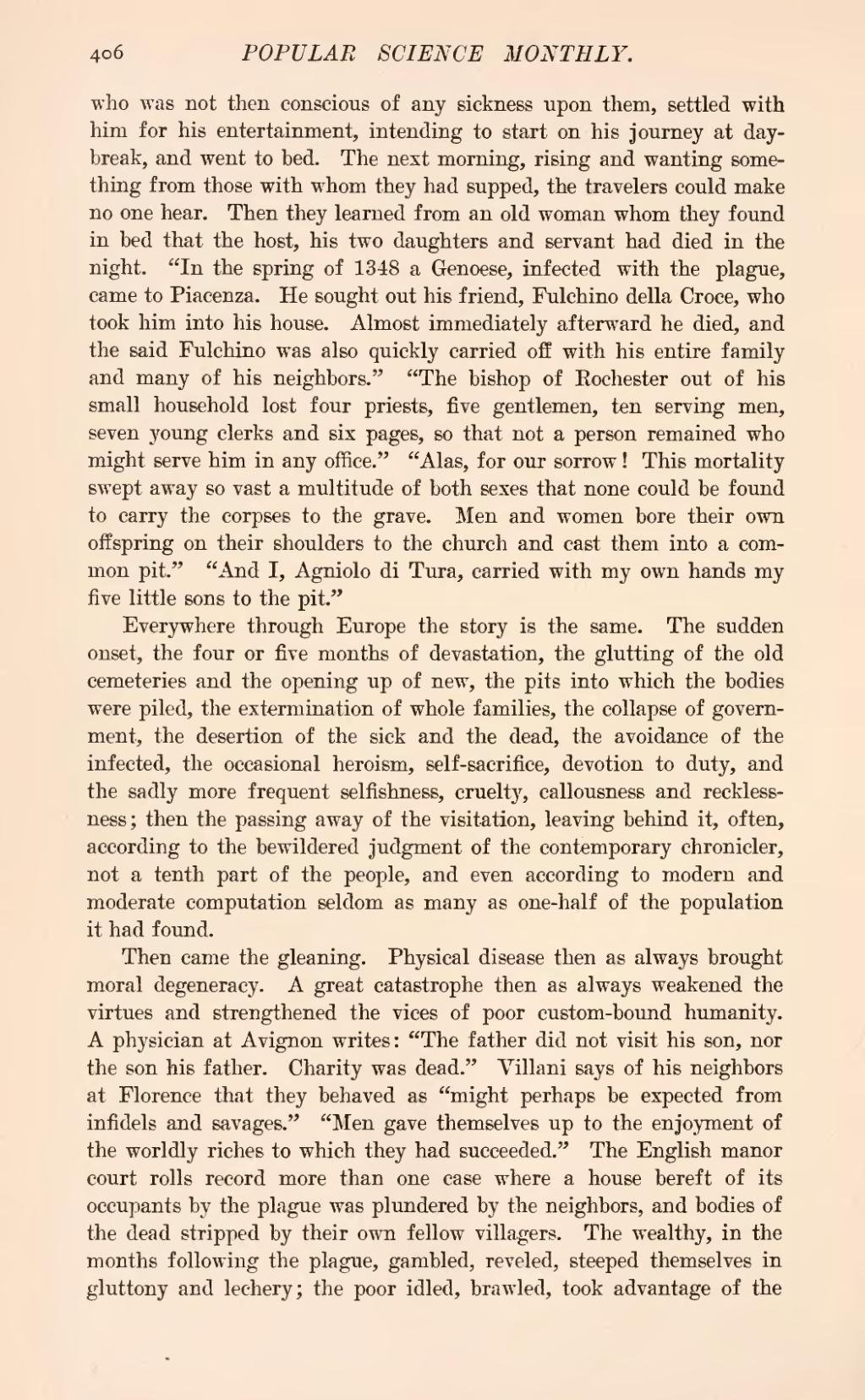who was not then conscious of any sickness upon them, settled with him for his entertainment, intending to start on his journey at daybreak, and went to bed. The next morning, rising and wanting something from those with whom they had supped, the travelers could make no one hear. Then they learned from an old woman whom they found in bed that the host, his two daughters and servant had died in the night. "In the spring of 1348 a Genoese, infected with the plague, came to Piacenza. He sought out his friend, Fulchino della Croce, who took him into his house. Almost immediately afterward he died, and the said Fulchino was also quickly carried ofE with his entire family and many of his neighbors." "The bishop of Rochester out of his small household lost four priests, five gentlemen, ten serving men, seven young clerks and six pages, so that not a person remained who might serve him in any office." "Alas, for our sorrow! This mortality swept away so vast a multitude of both sexes that none could be found to carry the corpses to the grave. Men and women bore their own offspring on their shoulders to the church and cast them into a common pit." "And I, Agniolo di Tura, carried with my own hands my five little sons to the pit."
Everywhere through Europe the story is the same. The sudden onset, the four or five months of devastation, the glutting of the old cemeteries and the opening up of new, the pits into which the bodies were piled, the extermination of whole families, the collapse of government, the desertion of the sick and the dead, the avoidance of the infected, the occasional heroism, self-sacrifice, devotion to duty, and the sadly more frequent selfishness, cruelty, callousness and recklessness; then the passing away of the visitation, leaving behind it, often, according to the bewildered judgment of the contemporary chronicler, not a tenth part of the people, and even according to modern and moderate computation seldom as many as one-half of the population it had found.
Then came the gleaning. Physical disease then as always brought moral degeneracy. A great catastrophe then as always weakened the virtues and strengthened the vices of poor custom-bound humanity. A physician at Avignon writes: "The father did not visit his son, nor the son his father. Charity was dead." Villani says of his neighbors at Florence that they behaved as "might perhaps be expected from infidels and savages." "Men gave themselves up to the enjoyment of the worldly riches to which they had succeeded." The English manor court rolls record more than one case where a house bereft of its occupants by the plague was plundered by the neighbors, and bodies of the dead stripped by their own fellow villagers. The wealthy, in the months following the plague, gambled, reveled, steeped themselves in gluttony and lechery; the poor idled, brawled, took advantage of the

